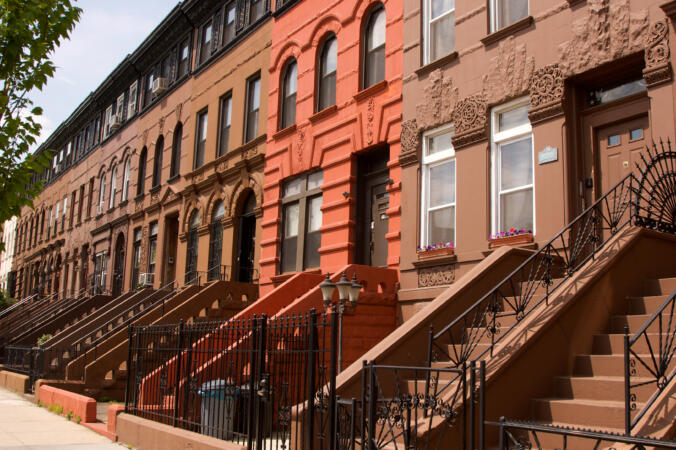Property is power. Owning a home and land has always been the American dream. Unfortunately, that dream has often been made nightmarish for Black people. Post-slavery Black families fought hard to obtain land and build the foundation of what would become generational wealth for future generations.
Often, the families had their progress deferred due to racist practices, including raised property taxes, police harassment and illegal purchases. As time passed, access to education and employment increased, and so did the Black middle class. This made home and land ownership an achievable milestone. This was also when inner cities introduced the idea of housing projects that were supposed to provide living accommodations for lower-income families. Fast forward to 2024, and these areas that were once considered less than favorable or low-income have now been overtaken by gentrification and forced overhaul.
While the cosmetic upgrades lend to curbside appeal, the truth behind gentrification is ugly. Astronomical real estate prices, redlining and unfair housing policies have pushed Black residents out with no place to go.
A 2020 study conducted by Stanford sociologists focused on how gentrification has disproportionately adverse effects on minority communities. The influx of individuals with access to money and resources has caused a housing crisis for individuals without the same options.
In an interview with Standford University, sociology professor and study co-author Jackelyn Hwang said, “If we look at where people end up if they move, poor residents moving from historically Black gentrifying neighborhoods tend to move to poorer non-gentrifying neighborhoods within the city, while residents moving from other gentrifying neighborhoods tend to move to wealthier neighborhoods in the city and in the suburbs.”
Gentrification is more than just a real estate issue. It’s erasure. The effects of it trickle down to Black-owned businesses that once served the community and culture that connected the residents.
As the nation’s housing issue becomes more prevalent, a microscope has been placed on gentrification and its underlying issues. Here are some individuals and organizations working to halt the displacement of Black communities and culture.
In 2020, Oakland was considered the No. 1 city in America dealing with gentrification. According to USA Today, due to the coastal city’s “hottest housing market” and “intensive job growth,” the natives were being pushed out. These rates were alarmingly high in Black and Latino communities.
Causa Justa/Just Cause is a grassroots organization that fights for tenant rights, low-income housing and immigration policy reform throughout the Bay area. Post-COVID, the group worked to pass the Measure V bill that protected long-term tenants in low-income houses from being evicted. The organization’s website states their efforts protected over 25,000 Oakland tenants from being displaced.
View this profile on Instagram
Dr. Dwight and Beverly McKenna own the Le Musée de f.p.c. (The Museum of The Free People Of Color) in New Orleans, Louisana. The McKennas are also the proprietors of Bayou Road, aka the oldest street in the city. For decades, the couple has worked to tell the true story of the Crescent City. Their privately curated museum boasts artifacts from Dr. McKenna’s family documenting the growth of the Black community in New Orleans. Bayou Road is a physical representation of their efforts, as every business on the street is Black-owned and operated, each serving the community in its unique way.
Bayou Road features restaurants like Nonno’s Cajun Cuisine & Pastries, where chef and owner Shermond Esteen Jr employs previously incarcerated individuals. The fairway also is home to the oldest Black-owned bookstore in New Orleans. The Community Book Center has served the community since 1983.
View this post on Instagram
With three chapters in Atlanta, Dallas and Detroit, The Community Movement Builders knows the true meaning of unity in numbers. The organization is often on the front line for land equality and housing rights in their respective cities. The Atlanta chapter is deep in the fight against gentrification as the group fights the price inflation, over-policing and identity crisis that some of the neighbors are experiencing.
Through its “Stop Cop City” project, the organization urges community members to speak out about a $90 million project they claim is being funded by the city that “leased 381 acres of Weelaunee Forest to the Atlanta Police Foundation for a militarized police training facility funded by corporations.”
View this post on Instagram
Not just an issue affecting low-income households, gentrification is changing the country’s housing and business ownership landscape. Sound off in the comments! How’s your city handling gentrification, and who is leading the fight against it?

